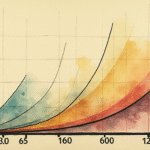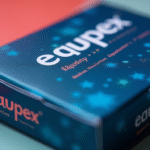Understanding the Degree of Integration in Government Purchases
In the past, the Degree of Integration was a key criterion in determining the type of procurement process for government purchases in Mexico, according to the then-current Acquisition Law. However, today’s context demands a refreshed and strategic application of this concept, especially in high-impact sectors like therapeutic goods (medicines, devices, and healing materials).
The Relevance of the Degree of Integration in Today’s Global Supply Chains
The complexity of global supply chains and the growing awareness of vulnerabilities in critical sectors, such as pharmaceuticals and medical devices, have given the Degree of Integration new relevance in terms of sustainability and investment incentives. The COVID-19 pandemic exposed Mexico’s reliance on foreign suppliers for essential inputs and finished products, posing significant risks to public health and economic stability.
Benefits of a Robust Degree of Integration in the Therapeutic Goods Industry
Implementing an effective Degree of Integration in government procurement of medicines, vaccines, medical devices, and other healthcare inputs can create a virtuous cycle for the industry. Prioritizing locally produced therapeutic goods with high local content will stimulate investment in research and development, strengthen national production capacity, generate high-value jobs, and reduce dependence on external sources, mitigating risks related to geopolitics and global supply chain disruptions.
Implications for the Therapeutic Goods Industry
A strong Degree of Integration criterion would encourage established pharmaceutical companies in Mexico to increase their investment in local production of active pharmaceutical ingredients (APIs), a crucial link in the value chain that has historically had low national integration. It would also push medical device companies to increase domestic manufacturing of components and finished products, fostering innovation and technology adoption.
Addressing Historical Gaps in Language and Methodology
To realize this potential, it’s crucial to address the historical lack of a common language and clear, consistent methodologies for determining and verifying the Degree of Integration. In the current context, conceptual ambiguity can be particularly detrimental in the therapeutic goods sector, where quality, safety, and traceability are critical aspects.
Establishing Clear Definitions
Precise definitions of what constitutes a “domestic input” in the pharmaceutical and medical device sectors are essential. For instance, should only synthesized active ingredients in Mexico be considered domestic, or also locally produced excipients and packaging materials? How will investments in research and development by established Mexican companies be valued? What criteria will be used to verify the origin of medical device components, considering their complex supply chains and potential multiple levels of procurement?
Collaboration for a Clear Regulatory Framework
Active collaboration between health authorities, the Secretariat of Economy, the pharmaceutical and medical device industry, academic institutions, and other stakeholders is vital to establish a clear and transparent regulatory framework around the Degree of Integration. This framework should include specific calculation methodologies tailored to the therapeutic goods sector, considering its unique production processes, value chain complexities, and the need to ensure product quality and safety.
Transparency in Procurement Processes
In the current context, transparency in procurement processes and accountability are imperative. Citizens have the right to know the origin of medicines and medical devices purchased by the government with public funds. A clear Degree of Integration system, with robust verification mechanisms, contributes to building trust and strengthening the legitimacy of procurement decisions.
Key Questions and Answers
- What is the Degree of Integration? It’s a criterion used in government procurement to prioritize locally produced goods, fostering investment and reducing dependence on external sources.
- Why is it important for the therapeutic goods industry? It encourages local production of essential inputs, strengthens national production capacity, and mitigates risks related to global supply chain disruptions.
- What are the challenges in implementing the Degree of Integration? Historical gaps in language and methodology, as well as the need for clear definitions and a robust regulatory framework, pose significant challenges.
- How can these challenges be addressed? Collaboration between relevant stakeholders, establishing clear definitions, and creating a transparent regulatory framework are crucial steps.






